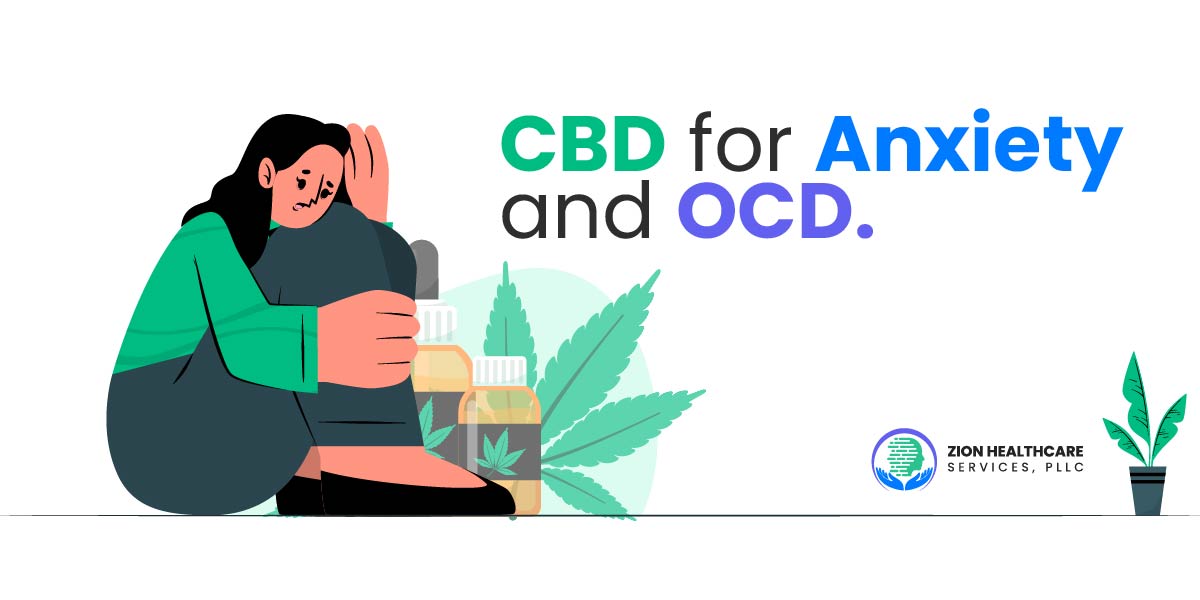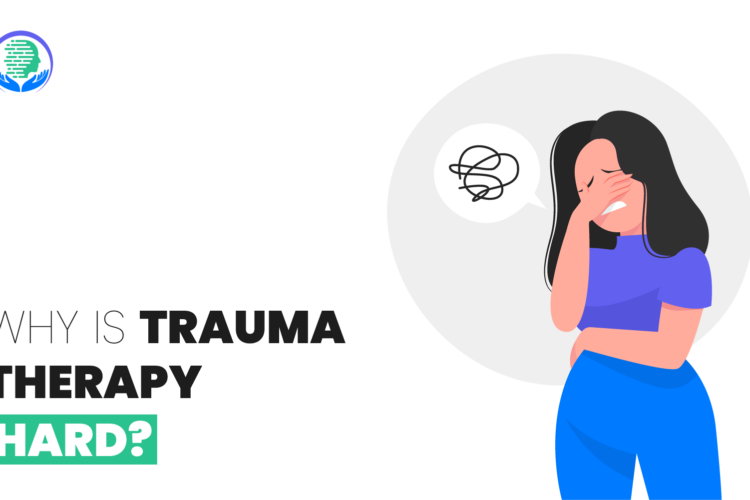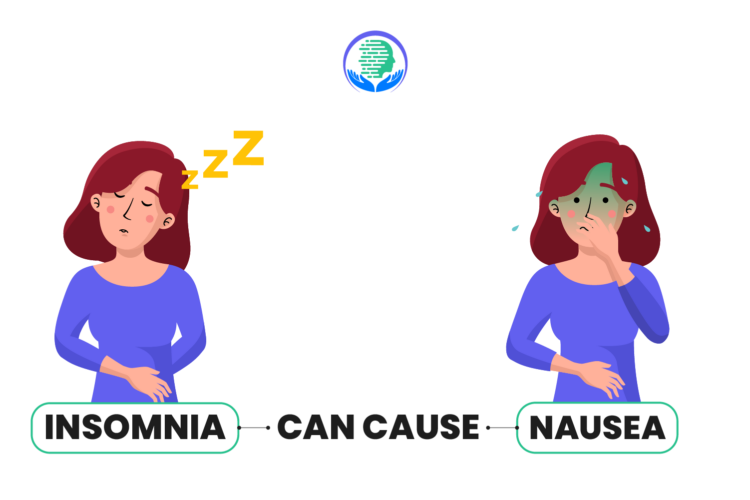
People are talking a lot about whether cannabidiol (CBD) can help with feeling anxious or having obsessive-compulsive disorder (OCD).
Well, CBD is a plant that has been used to treat depression and anxiety. It is the myth that CBD for anxiety and OCD is best to treat.
However, with many unsupported claims online, it isn’t easy to know what’s true.
Let’s take a look at CBD and how it may impact anxiety and OCD.
We’ll examine what CBD is, its potential mechanisms of action, and what the scientific studies show about its effectiveness for these conditions.
What is CBD?
CBD, short for cannabidiol, is a natural substance from the cannabis plant. It’s not like the part that makes you laugh (THC). People think CBD might be good for you, like helping to relax and reduce stress.
You can get it in different forms, such as CBD and OCD, and some folks use it to feel better.
What is OCD?
Around 2-3% of people worldwide are estimated to have obsessive-compulsive disorder (OCD), which is a mental health condition involving recurring and uncontrollable thoughts (obsessions) along with repetitive behaviors (compulsions) performed to manage anxiety or unease.
People consider using CBD for anxiety and OCD, seeking potential therapeutic effects.
CBD for anxiety and OCD Treatment
Approximately one-third of individuals do not see a substantial decrease in symptoms even after going through these treatments. Typically, it takes around 6 weeks for Selective Serotonin Reuptake Inhibitors (SSRIs) to have a noticeable impact.
There are anecdotal reports from many individuals suggesting that products containing cannabidiol (CBD) can alleviate symptoms of OCD. Ongoing research is exploring the potential of CBD for OCD, and while it is in the early stages, some studies have shown encouraging findings.
If you are searching for OCD treatment near me, you may visit Zion Healthcare Services to cure the disorder.
CBD for kids
CBD for kids is a topic that requires careful consideration and consultation with healthcare professionals.
- CBD is not approved for use in children. More research is needed on appropriate dosing and safety.
- Some early studies suggest CBD may help issues like epilepsy, anxiety, and sleep problems in children. However, more large clinical trials are still needed.
- Seeking out a doctor’s advice before giving CBD to a child is very important. The dosage depends on a child’s age, weight, and condition.
What Causes OCD to Get Worse?
Several factors can contribute to the worsening of obsessive-compulsive disorder (OCD). It’s important to note that the exact cause of OCD is not fully understood, and it likely involves a combination of genetic, neurological, behavioral, cognitive, and environmental factors.
- High levels of stress or exposure to stressful situations can trigger or intensify OCD symptoms.
- Sleep deprivation or irregular sleep patterns may contribute to increased anxiety and worsen OCD symptoms.
- Physical health problems or illness can impact mental well-being, potentially affecting the severity of OCD symptoms.
- Traumatic experiences, major life changes, or significant negative events may contribute to the worsening of OCD symptoms.
Are there any side effects to be aware of when taking CBD for OCD?
It’s important to be aware of potential side effects when considering CBD for OCD. While generally well-tolerated, they can occur, especially at higher doses:
- Fatigue: Drowsiness or tiredness might occur, particularly with larger doses.
- Diarrhea: Some people experience digestive issues like mild diarrhea or loose stools.
- Changes in appetite: CBD may increase or decrease your appetite, depending on the individual.
- Dry mouth: A common side effect of many medications, including CBD.
- Dizziness: Lightheadedness or dizziness can occur in some individuals.
Does CBD Help Anxiety and OCD Relief?
The potential effectiveness of CBD (cannabidiol) in relieving anxiety and OCD (obsessive-compulsive disorder) is an area of ongoing research.
Anxiety

Some preclinical and clinical studies have explored the impact of CBD on anxiety-related disorders. CBD is thought to interact with the endocannabinoid system and influence neurotransmitters, such as serotonin and GABA, which play roles in anxiety regulation.
However, results have been mixed, and the optimal dosage and long-term effects are still subjects of investigation.
Many individuals have reported finding relief from CBD for anxiety and OCD.
OCD

Research on CBD’s potential for managing OCD symptoms is relatively limited compared to anxiety. Preliminary studies and anecdotal reports suggest that CBD may have a positive impact on certain aspects of OCD.
Furthermore, self harm OCD, also called Harm OCD, involves disturbing thoughts and urges to harm yourself or others, even though you wouldn’t want to. These unwanted thoughts cause anxiety and distress, but they don’t reflect your true desires.
Still, rigorous, large-scale clinical trials are needed to establish its efficacy and safety for treating OCD.
Some individuals explore the potential benefits of using CBD for anxiety and OCD symptoms, hoping it may offer relief.
CBD for OCD Treatment
Researchers have started to pay more attention to how CBD might help people with obsessive-compulsive disorder (OCD). A few studies have looked at how CBD affects OCD symptoms. Their early findings are hopeful.
One lab study, published in Wiley Online Library, looked at how cannabinoids immediately impact OCD symptoms. It predicted that CBD could lower anxiety and OCD signs.
Likewise, a thorough overview published in ScienceDirect proposed CBD seemed to work in animal models showing compulsive actions. Both provided preliminary support that CBD may ease OCD.
Does CBD help with OCD?
There is growing evidence that CBD may help reduce anxiety and OCD symptoms, but more research is needed. Here’s a summary of what we know so far:
- A 2015 review of studies found strong evidence that CBD doses of 300 to 600 milligrams (mg) taken orally reduce anxiety symptoms.
- A 2018 study found that CBD was effective in treating anxiety disorders, including generalized anxiety disorder, social anxiety disorder, post-traumatic stress disorder, and panic disorder.
- CBD is thought to work by interacting with the brain’s endocannabinoid system, which is involved in regulating mood, stress, and sleep.
- Research on CBD for OCD is more limited, but some studies have shown promising results.
- A 2020 study found that medical cannabis, which contains both CBD and THC, was effective in reducing OCD symptoms in some patients.
- A small 2017 study found that CBD was well-tolerated and showed some preliminary efficacy in reducing OCD symptoms.
Get Professional Treatment for Anxiety and OCD
While CBD holds promise in mental health, it’s crucial to recognize it’s not a guaranteed cure-all. Anxiety and OCD are serious conditions requiring professional medical attention.
At Zion Healthcare Services, our dedicated staff provides top-notch treatment for OCD, ensuring comprehensive and compassionate care.
If you’re feeling anxious or dealing with OCD, don’t be afraid to ask for help. We’re here to help you through it all. Call us at (214) 20952-7536 to start your journey to better mental health. We’re dedicated to supporting you with care and knowledge, and your well-being comes first.
FAQs
How do we choose the best CBD gummies for anxiety and OCD?
CBD gummies have shown promise in managing anxiety and OCD symptoms through their interaction with the brain’s endocannabinoid system (ECS). This system plays a vital role in regulating mood, stress, and sleep, areas often imbalanced in these conditions.
is OCD neurodivergent?
Whether OCD is considered neurodivergent depends on your definition. Some say it falls under the umbrella due to its unique brain functioning and potential overlap with other neurodivergent conditions, while others view it primarily as a mental health disorder.
Can lamictal make OCD worse?
Lamictal’s effect on OCD can be complex and vary between individuals. While it’s primarily used for mood disorders like bipolar disorder, it can worsen OCD symptoms in some cases.
Can OCD cause panic attacks?
OCD doesn’t directly cause panic attacks; the two conditions can be closely linked. The intense anxiety and distress surrounding OCD obsessions and compulsions can trigger panic attack symptoms like rapid heartbeat, difficulty breathing, and feelings of dread.
How can OCD affect relationships?
The relentless nature of OCD can cast a shadow on relationships, potentially;
- Fueling anxiety and tension.
- Creating distance
- Straining communication
Is CBD good for anxiety and OCD?
CBD may help reduce anxiety symptoms, with doses of 300-600mg showing effectiveness. Moreover, it interacts with the brain’s system regulating mood, stress, and sleep, areas often imbalanced in anxiety.


